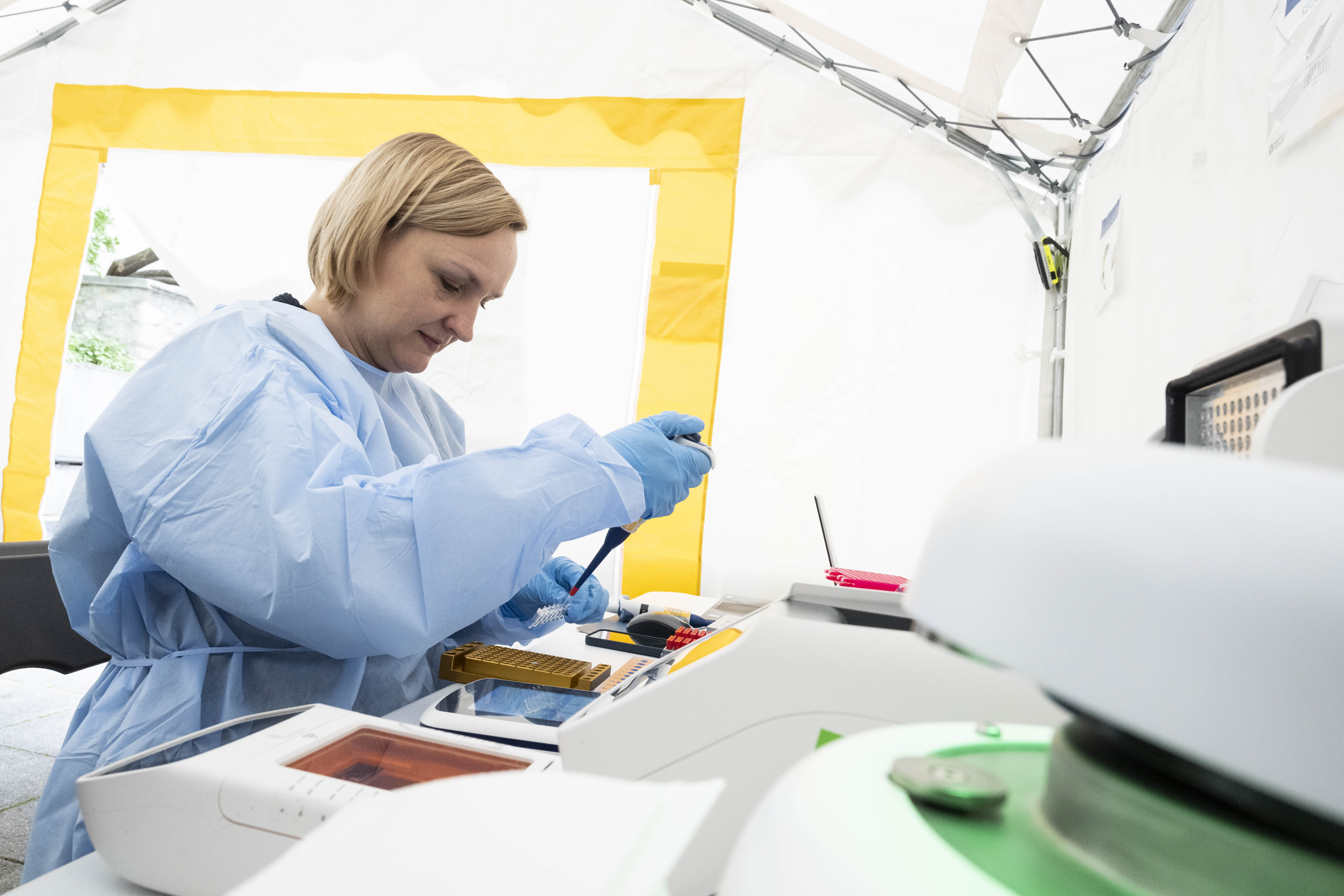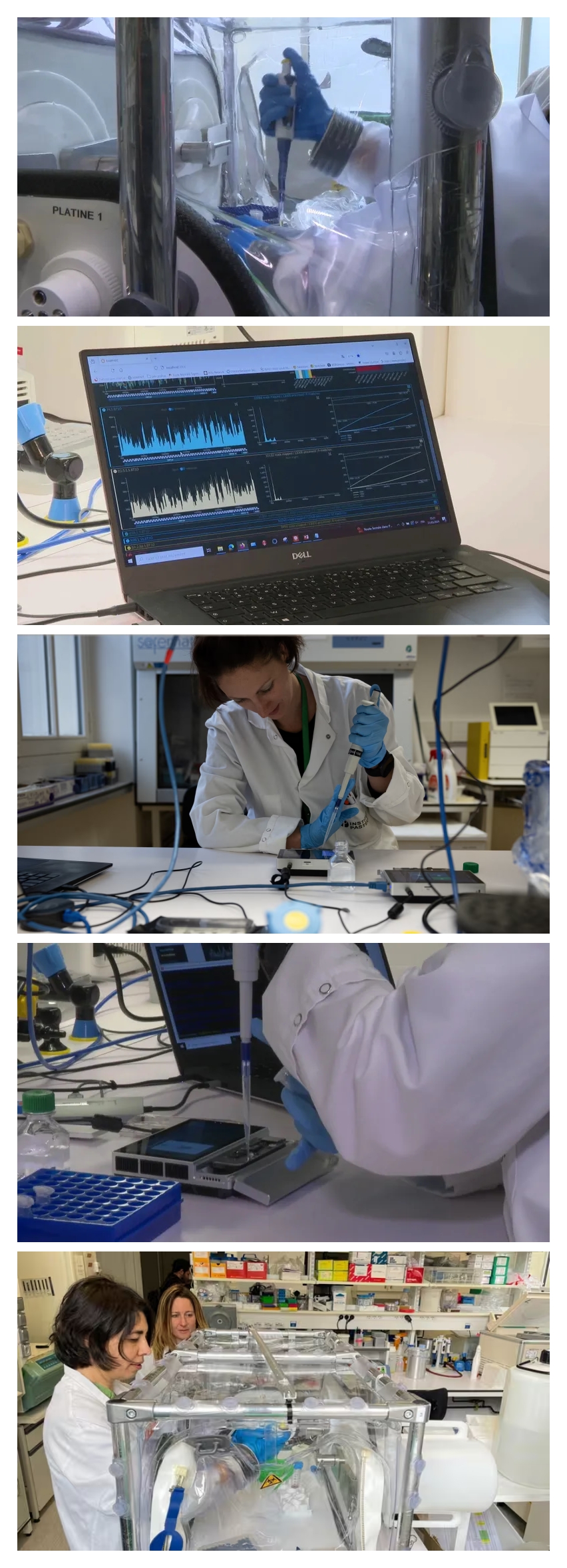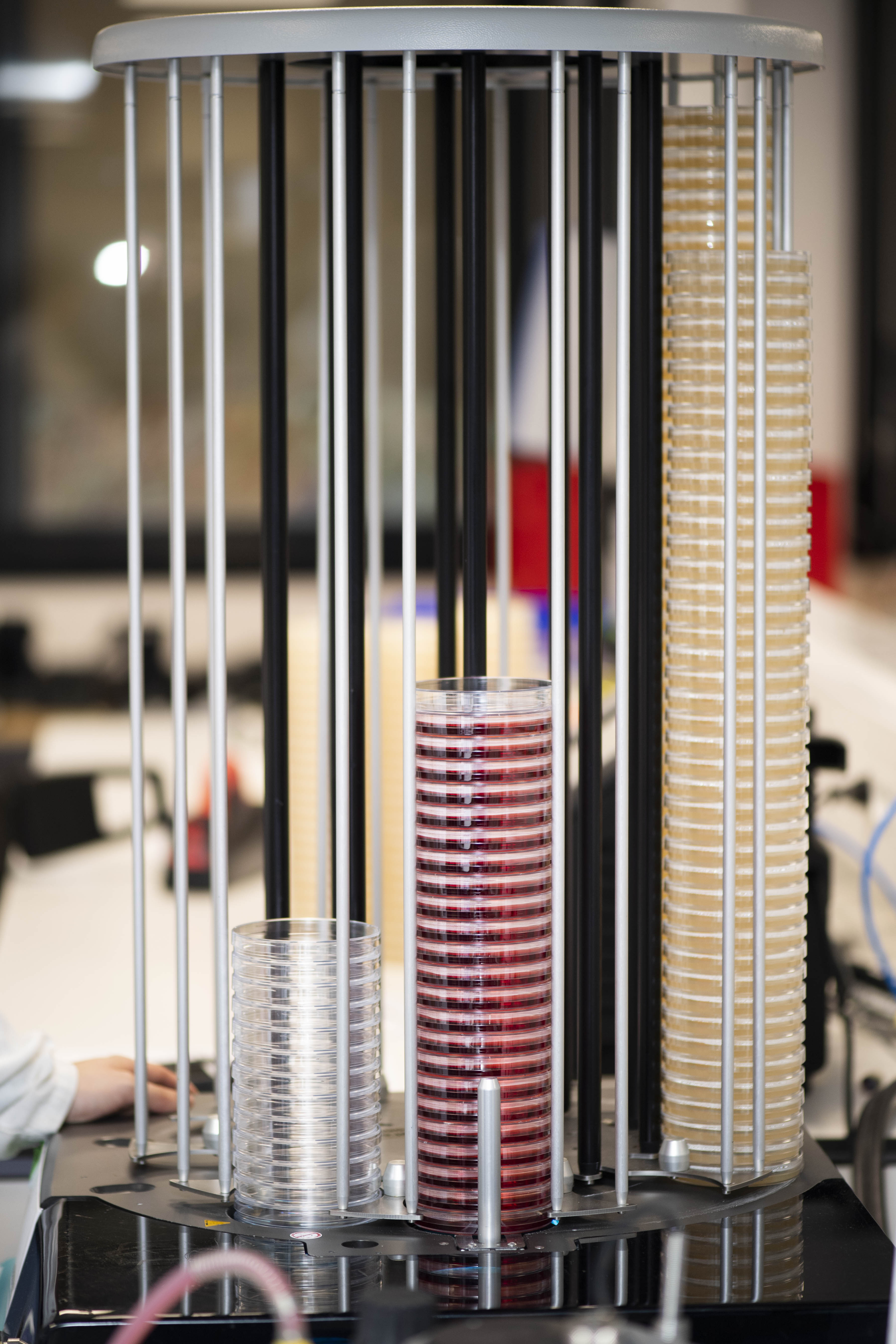
July 12, 2024
Bulletin interne de l'Institut Pasteur


2024 Paris Olympics: the Institut Pasteur supports the health authorities
 The Institut Pasteur is working actively alongside health authorities to safeguard public health and safety during the 2024 Olympic and Paralympic Games. It will be introducing several measures and initiatives to respond to the challenge of health surveillance during this critical period.
The Institut Pasteur is working actively alongside health authorities to safeguard public health and safety during the 2024 Olympic and Paralympic Games. It will be introducing several measures and initiatives to respond to the challenge of health surveillance during this critical period.
The 2024 Olympic Games in Paris are not just a major sporting event; they also represent a considerable health challenge: 15 million people, including nearly 3 million tourists, are expected to come to Paris and the Greater Paris region to attend the event.
The Institut Pasteur is working actively alongside health authorities to safeguard public health and safety during the 2024 Olympic Games. Drawing on the National Reference Centers (CNRs) attached to its research units and the Laboratory for Urgent Response to Biological Threats (CIBU), the Institut Pasteur will be strengthening its detection, expertise and alert system throughout the period to optimize epidemiological surveillance efforts, in close collaboration with French and international health authorities. Surveillance involves rapidly detecting cases of infectious diseases such as respiratory and gastrointestinal infections, and vector-borne diseases that could emerge during these large gatherings.
Throughout the Olympic period in France, reference health care institutions will be on the front line in diagnosing individuals experiencing symptoms of contagious diseases. Since early 2024, a record number of imported cases of dengue have been recorded in mainland France. The Olympics will see huge numbers of athletes and visitors arriving from all over the world, leading to a potential risk of emergence of arboviruses such as dengue, chikungunya and Zika, or cases of influenza imported by people arriving from the southern hemisphere, where it is currently winter.
The resurgence in cases of whooping cough and COVID-19 recently observed in France also requires increased surveillance as it could impact those traveling to and from mainland France this summer.
Find out more: see the dedicated report

The CNRs and CIBU are not alone in responding to this need. Several measures and initiatives introduced by the Institut Pasteur in response to the challenge of health surveillance during this critical period will be reported in the newsletter, including the work of the RENAL/RELAB network and the Institut Pasteur Medical Center, which is gearing up to receive patients.

National Reference Centers (CNRs) at the ready
Fifteen CNRs are hosted at the Institut Pasteur and four at the Institut Pasteur de la Guyane, involving 16 research units or laboratories. The CNRs, together with the Laboratory for Urgent Response to Biological Threats (CIBU), are grouped together in the Multi-Site Reference and Expertise Laboratory (LREMS), a facility that resembles a medical test laboratory.
For the 2024 Olympics, eight CNRs will be particularly ready to respond, namely those involved in monitoring bacterial infections (whooping cough, meningitis and leptospirosis), foodborne bacterial infections (listeriosis, infections with E. coli, Salmonella or Shigella, botulism), viral infections causing respiratory infections (influenza and SARS-CoV-2), arboviruses (chikungunya, dengue and Zika) and viral hemorrhagic fevers.

Find out more about the CNRs (in French)

Laboratory for Urgent Response to Biological Threats (CIBU)

• At the Institut Pasteur, the CIBU is gearing up for the Olympics and will be ready to intervene if suspicious cases of fever or other symptoms are reported. Its role is to quickly identify the pathogen responsible for a patient's symptoms based on samples sent by hospitals in Paris, with the aim of avoiding a potential outbreak.
For the past year and a half, the CIBU has been preparing so that it can respond to as many requests as possible by developing new tests that also detect tropical diseases and by strengthening its methods and team.
Where previously the CIBU was able to detect 3 to 5 viruses with a single test based on a single sample taken from a patient, now up to 24 different viruses and bacteria can be identified in less than 2 hours.
It is important to obtain rapid results so that patients can be isolated as quickly as possible.
Some 27 scientists and engineers will be on call day and night, 24/7, including 3 additional staff members for the Olympic period.
See the CIBU's video about what would happen if there were an outbreak during the 2024 Olympics
 Several TV reports and press articles have focused on the CIBU during the Olympics. Here is a selection prepared for you by the newsletter team:
Several TV reports and press articles have focused on the CIBU during the Olympics. Here is a selection prepared for you by the newsletter team:
Le Parisien – Le plan de l'institut Pasteur pour traquer les virus dans l'air
Le Monde – Une cellule d'urgence à l'Institut Pasteur
France 5 – Magazine de la santé (à 7’57) - Epidémie : L'institut Pasteur en alerte lors des JO
AFP Podcast - JO : à l’Institut Pasteur, une équipe de choc contre les virus
AFP vidéo - JO: à l'Institut Pasteur, une équipe dans les starting-blocks pour traquer les virus

Media Platform: getting ready for the Olympics, an unprecedented period
As the French capital prepares to host the Olympic Games, the Institut Pasteur's Media Platform is also preparing for an unprecedented period. In anticipation of this major event, the team has introduced exceptional measures to keep its services running throughout the period and meet the needs of units and departments.
Anticipating and managing raw materials

To ensure a smooth and continuous production process during this intense period, the platform's members have planned ahead and ordered extra supplies of raw materials. This will help in two ways:
• It will ensure continuous production: the Institut Pasteur's scientists depend on the platform for regular reliable supplies of culture media. By storing more raw materials, the team will be able to meet the needs of staff without interruption, even if there are logistical disruptions.
• It will reduce the number of deliveries: during the Olympics, the road network in Paris is likely to be particularly busy. Reducing the number of deliveries to the Institut Pasteur's campus will help reduce traffic and keep any delivery delays to a minimum, while also contributing to the platform's aim to reduce its carbon footprint.
Media platform, CIBU and CNRs: a three-pronged approach to the influx of tourists
 The Laboratory for Urgent Response to Biological Threats (CIBU) and the National Reference Centers (CNRs) at the Institut Pasteur play a crucial role in monitoring and responding to health threats. With a huge influx of tourists expected in Paris, the work of some of these centers is likely to ramp up, especially those dealing with infectious diseases (E. coli, Shigella, Bordetella), leading to a rise in the volume of orders for certain culture media. Although staff numbers will be down by 50 to 60% over the summer period, the entire team is ready to rise to this new challenge, as it did successfully during the COVID-19 period. With its efficient organization and expertise, the team is committed to maintaining a high level of service during this exceptional period.
The Laboratory for Urgent Response to Biological Threats (CIBU) and the National Reference Centers (CNRs) at the Institut Pasteur play a crucial role in monitoring and responding to health threats. With a huge influx of tourists expected in Paris, the work of some of these centers is likely to ramp up, especially those dealing with infectious diseases (E. coli, Shigella, Bordetella), leading to a rise in the volume of orders for certain culture media. Although staff numbers will be down by 50 to 60% over the summer period, the entire team is ready to rise to this new challenge, as it did successfully during the COVID-19 period. With its efficient organization and expertise, the team is committed to maintaining a high level of service during this exceptional period.